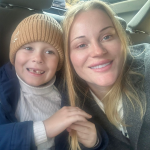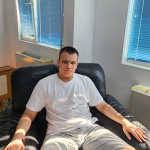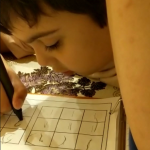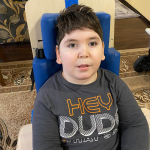Why Don’t Children with Autism Speak?
Children with autism may experience various communication problems, which can lead to them not speaking or having limited speech. The earlier autism is diagnosed in a child, the sooner corrective work should begin. For every child diagnosed with autism, the lack of speech must be treated as an individual issue.
Reasons Why Children with Autism Do Not Speak:
- Problems with Social Communication: It is harder for children with autism to establish and maintain contact. They may struggle with understanding non-verbal cues, such as facial expressions and gestures, making communication difficult.
- Limited or Absent Verbal Language: Some children with autism may not speak at all or have a limited vocabulary. This may be due to difficulties in speech and language development.
- Problems with Understanding Language: Children with autism may find it difficult to understand the meaning of words and sentences, which also impacts their ability to express themselves verbally.
- Sensory Sensitivity: Some children with autism are sensitive to sounds, light, or other sensory inputs, which may cause distress and hinder communication.
- Strict and Repetitive Interests: Children with autism may focus on strict, specialized interests, which can reduce their motivation to develop or use language skills in social situations.
- Use of Alternative Communication Methods: Some children with autism may use alternative methods of communication, such as gestures, pictograms, computer programs, or other technologies, to express their thoughts and needs.
How to Develop Speech in a Child with Autism?
Teaching a child to speak requires a highly individualized approach. The correct strategy for speech development can be developed with the involvement of a pediatric neurologist, ABA therapist, correctional educator, and speech therapist. From the moment of diagnosis, the child should be shown to these specialists. Key rules for stimulating speech in autism:
- Early Intervention: It is very important to start working on speech development as early as possible.
- Evidence-based Approaches: Speech correction should be handled by specialists, such as speech therapists or teachers specializing in autism. Often, parents take on this role, which can distort the results.
- Individualized Approach: The decision on which types of therapy will be effective for a specific child should be made by specialists after consultation and testing.
- Stimulating Communication: Any attempt at communication, whether verbal, using gestures, or pictograms, should be encouraged.
- Use of Visual Aids: For some children with autism, it is helpful to use pictograms, photos, or other visual tools to help them organize and express their thoughts.
Stem Cell Transplantation – An Effective Solution to Speech Problems in Autism
The Mardaleishvili Medical Center specializes in the surgical treatment of autism. The essence of the method is stem cell transplantation taken from the umbilical blood, the child’s own bone marrow, or a donor’s bone marrow. After the transplantation, children show significant progress in development – coherent speech appears, learning ability improves, cognitive abilities increase, and the child becomes more balanced and calm.
Currently, this method is considered the most effective in the world. Each year, the medical center performs up to a hundred stem cell transplant surgeries. The procedure is quite safe and helps to initiate the growth of brain neurons. As a result, there is a rapid development leap and achievement of results that are impossible with other types of therapy.
Help your child overcome autism with stem cell therapy.
Autism Treatment Center Videos
Autism treatment with own stem cells
Cord blood association congress
International Quality Crown
Autism Treatment Reviews
Autism treatment with own stem cells
The story of Alessandro (6 years old)
Autism Patient Testimonial - Stem Cell Treatment
Clients Testimonials

Feedback from Igor, David’s father (12 years old) Read More

Feedback from Olga, Fedya’s mother Read More

Feedback from Natalia, Radomir’s mother (15 years old) Read More

Feedback from Esther, Samuel’s mother (8 years old) Read More

Feedback from Abibe, Selim’s mother (7 years old) Read More












